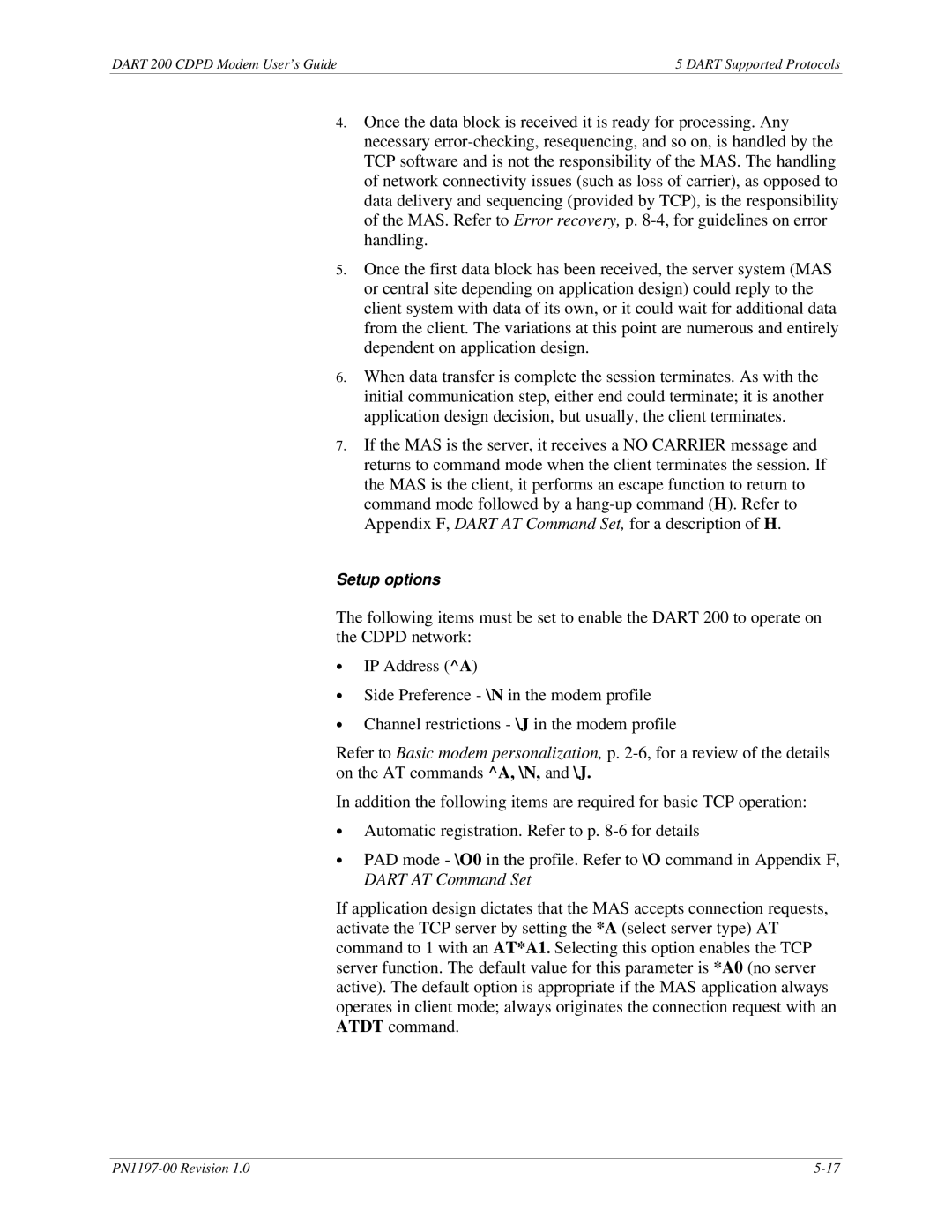DART 200 CDPD Modem User’s Guide | 5 DART Supported Protocols |
4.Once the data block is received it is ready for processing. Any necessary
5.Once the first data block has been received, the server system (MAS or central site depending on application design) could reply to the client system with data of its own, or it could wait for additional data from the client. The variations at this point are numerous and entirely dependent on application design.
6.When data transfer is complete the session terminates. As with the initial communication step, either end could terminate; it is another application design decision, but usually, the client terminates.
7.If the MAS is the server, it receives a NO CARRIER message and returns to command mode when the client terminates the session. If the MAS is the client, it performs an escape function to return to command mode followed by a
Setup options
The following items must be set to enable the DART 200 to operate on the CDPD network:
∙IP Address (^A)
∙Side Preference - \N in the modem profile
∙Channel restrictions - \J in the modem profile
Refer to Basic modem personalization, p.
In addition the following items are required for basic TCP operation:
∙Automatic registration. Refer to p.
∙PAD mode - \O0 in the profile. Refer to \O command in Appendix F, DART AT Command Set
If application design dictates that the MAS accepts connection requests, activate the TCP server by setting the *A (select server type) AT command to 1 with an AT*A1. Selecting this option enables the TCP server function. The default value for this parameter is *A0 (no server active). The default option is appropriate if the MAS application always operates in client mode; always originates the connection request with an ATDT command.
